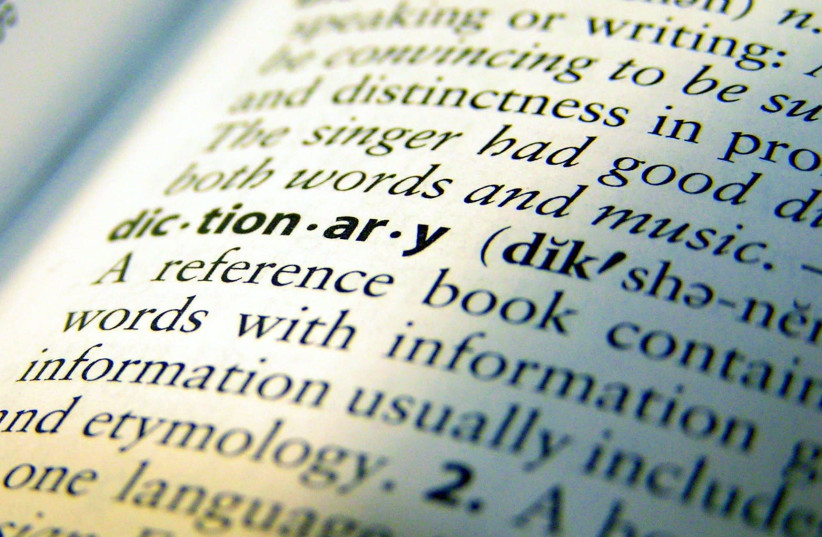Words are supposed to reveal and clarify. In today’s world, many words have become so meaningless as to completely cloud what our true intentions are.
The holiday of Passover is a festival of freedom. The great Kabbalist, the Arizal, dissected the Hebrew name Pesach as a composite of two words, Pe (A mouth) and sach (that speaks). The underlying suggestion is that speech can also be in a state of exile and in chains. When we cannot express ourselves, our power of speech is in need of liberation.
Our society, in the 21st century, is suffering from this state of exile, where words that are supposed to convey a message, actually obfuscate and conceal their true intent. And some words are downright out of place and need to be eliminated.
The first word I would eliminate from our lexicon is tolerate. I cannot tolerate this word because it is used for the wrong things.
To be sure, this is an English word, and it has its place in our day to day discourse, but not in the way it is used to describe our feelings about others.

We may use the word tolerate for distasteful food, a difficult job, a root-canal or a colonoscopy, but not for people.
Dealing with people is an entirely different story.
We shouldn’t tolerate people, either we reject them because they are evil or we embrace them because they are good and most people are, basically, good.
Our Sages (Ethics of the Fathers, 1:6) state: “Judge everyone favorably.” The Hebrew word for everyone can also be rendered as entire. When you judge a person, judge the entire person. Don’t determine a person’s value by one or several things you know about him or her. And when you see that the person is essentially good, to love him or her.
Similarly, when we deal with a person’s behavior and characteristics, we should embrace their good qualities and repudiate the evil. There is nothing to tolerate about other people or their views.
Let me give a politically correct illustration. I’ll pick on an issue that we can all agree on, the shape of the earth. How do we relate to the view of some on the fringe that the earth is flat? Do we tolerate it (the view) or do we reject it outright? While we must not reject the person for his or her ignorance – we must feel pity for them – we cannot, however, tolerate what we think and know is false.
To respect and tolerate the view that the earth is flat implies that we either agree with it, have doubts about it, or that we have no view about the subject.
On the other end of the spectrum of false views, we have Holocaust deniers. I think we can all agree that when we hear Holocaust denial coming from the mouths of those who would want to do it again, we may rightfully reject the person, as well as his evil views. We can show no tolerance for that person and certainly not for that hateful view.
Conversely, in some cases, we might actually find ways of seeing the hidden good in these individuals and help them actualize their heretofore latent goodness. There have been cases where antisemites and haters have made a 180 degree reversal because of the love shown to them. But, we certainly can never tolerate such erroneous and hateful views.
When we deal with other people’s religious beliefs, the same distinction must be made. While we must respect and even embrace people with whom we strongly disagree, we are not expected to tolerate their views.
As an American we must respect their right to be wrong and even fight for their freedom of speech and expression.
As Jews we must love and embrace every Jew, even one with whom we strongly disagree.
By the way, advocating love of our fellow Jew is not intended to exclude others. On the contrary, to love our family and extended family actually empowers us to also love and embrace all of humanity. When the boiler room is hot it guarantees that there will be warmth even in the remote upper stories of the building. If one’s love to one’s own extended family is lukewarm there will be very little warmth left for outsiders.
In conclusion, let us reaffirm our rejection of evil, and our unmitigated and unconditional love for our fellow, and leave our tolerance for the next colonoscopy.
The writer is director of the Jewish Discovery Center in Buffalo, NY, having lectured in the Judaic Studies Department at State University of New York at Buffalo for 36 years, and authoring 100 books on Bible, Talmud, Maimonides, Jewish thought, Kabbalah, hassidic philosophy, Jewish holidays, etc.
